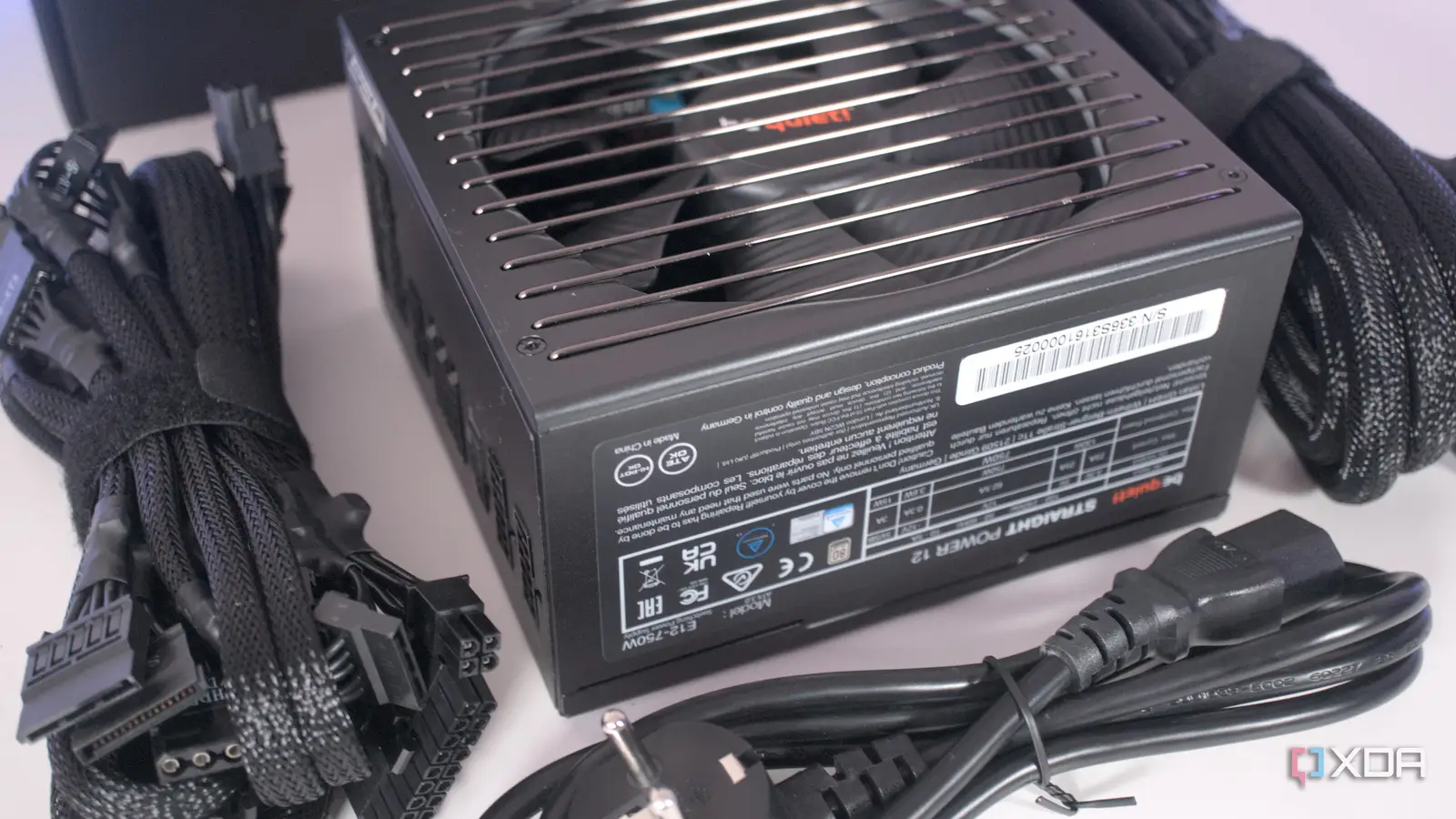Copyright XDA Developers

They say PC building is like adult LEGO. This generalization may not be entirely accurate. After all, children's toys don't die or blow up if you attach them wrong. Handling PC hardware isn't risky as long as you know what you're doing, but even experienced builders can sometimes make the fatal mistake of using old cables with a new power supply. It might seem harmless from the outside, but mixing your old PSU cables with your new unit can have disastrous consequences if you're especially unlucky. There's really no reason to reuse your old cables once you upgrade your PSU, so it's best to drop the idea altogether. PSU cables aren't standardized (sadly) Newer standards exist, but adoption has been poor Unfortunately, even though all your old PSU cables might look visually similar to the ones that came with your new PSU, they're not guaranteed to be functionally identical. Different manufacturers use different pinouts for the PSU ends of even the most common cables, such as the 8-pin, 6-pin, and 24-pin connectors. The standardization is limited to the component ends of the cables, and manufacturers are free to use proprietary pinouts on the PSU end. Even different models from the same manufacturer can have the power and ground pins at different locations on the same connector. Brands like Corsair have made efforts to bring complete standardization across each of their series of PSUs, but we're a long way from the time when you can freely swap cables between different power supplies. Another standard that could make this confusion obsolete is Intel's ATX12VO (12V only), which has been available since 2019. This standard aims to remove all the different voltage rails from the ATX PSU standard except the 12V rails for supplying to the motherboard. The onus of converting this 12V supply to 5V or 3.3V, as needed, will now rest on the motherboard, hence the need for newer, compatible motherboards. Adoption of this new standard has been limited to system integrators and a handful of retail PSUs and motherboards, but we might see more players get in on it in the near future. Mixing PSU cables is serious business You can fry your components or risk a fire If you're wondering what could go wrong if you went ahead and used your old 24-pin or 8-pin cables with your new PSU, the possibilities are endless (in a bad way). If your old and new cables have different pinouts, you could end up supplying incorrect voltage to your motherboard, GPU, or CPU. This can easily cause havoc on your PC and even fry your sensitive (and expensive) components. For instance, your old cable that was delivering 5V on the old PSU could deliver as much as 12V on the new one, which could easily kill your PC permanently. It could even be a safety risk, as higher-than-necessary voltage can cause a spark that could lead to a fire. If you're thinking, "I've mixed PSU cables before and nothing happened", that's because you were lucky. The two power supplies might have been from the same lineup, manufacturer, or OEM, and you got a lucky break. That doesn't mean you should tempt fate again. Semi-modular and modular PSUs have all but replaced non-modular PSUs today, so there's no safety net anymore. It's your responsibility to protect your hardware from voltage mismatch. Remember: New PSU, new cables Specifically, the ones that came with it There's absolutely no reason to use your old PSU cables when you've got a fresh set with your new power supply. Any cables that you'd reasonably need will come bundled with your new PSU, so the best policy is to bid goodbye to your old cables along with your old PSU. I would go so far as to recommend not reusing your old cables even on a higher-wattage model of the same PSU lineup. I always assume that the manufacturer would have introduced a new pin layout on the same PSU series. Even if they don't, this protects me from gambling with the safety of my components. Until PSU manufacturers don't come on the same page regarding universal standards, such as the Intel ATX12VO, you need to ensure you're not putting your PC at risk from something as simple as a cable mix-up. Even if the PSU cables look similar, remember that the internal layout can be different. You should treat all your old cables as incompatible with your new PSU, and leave it at that. Reusing old PSU cables can be deadly to your PC Mixing your old PSU cables with those of your new PSU might seem natural, but doing so can have deadly consequences for your precious hardware. Due to different PSU manufacturers using different pinouts for the same connectors, you could end up supplying incorrect voltage to your components. The effects might not be readily apparent, but you're sure to regret your actions when one or more of your components get fried due to overvoltage. You could also corrupt your data or create a fire that could be deadlier than a fried component.



